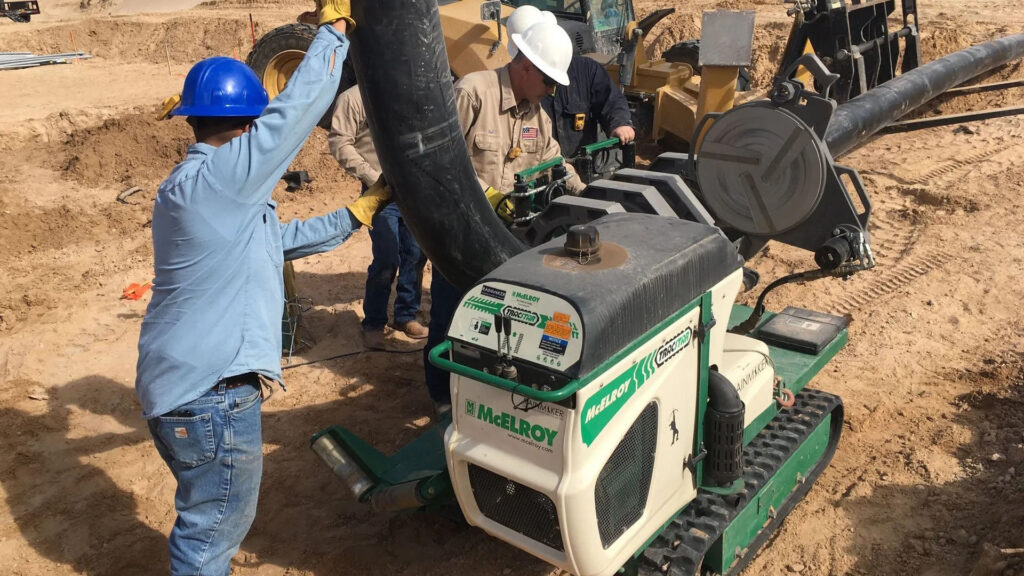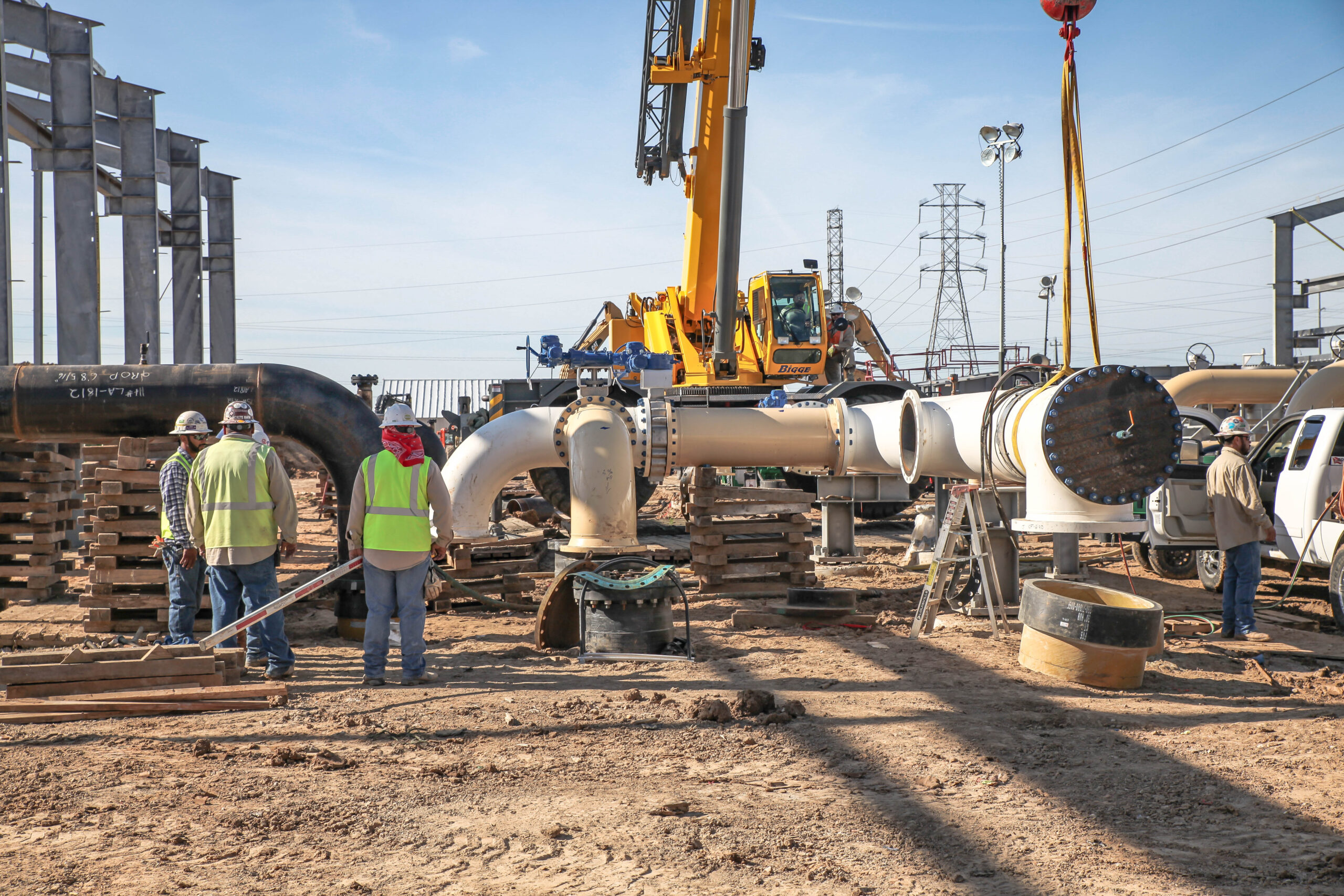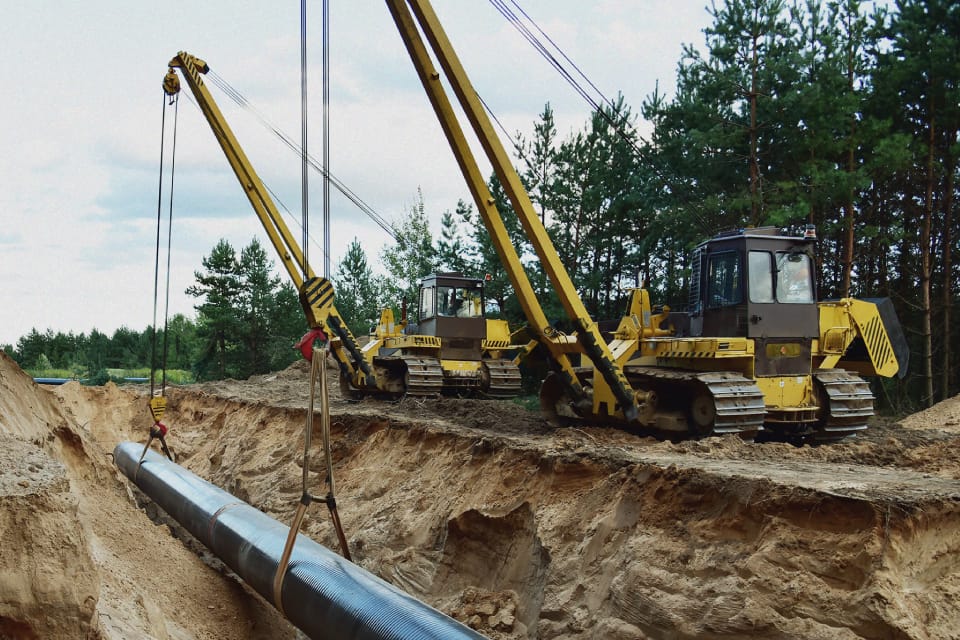7 Questions to Ask Before Contracting Pipeline Construction Services
Wiki Article
The Essential Guide to Comprehending Pipeline Construction Services and Their Value
Pipeline Construction services are essential to the transportation of essential sources such as water, gas, and oil. These services entail precise planning and execution, sticking to stringent safety and security and environmental requirements. As the sector adapts to modern obstacles, comprehending its ramifications and parts ends up being increasingly essential. What aspects add to the growing value of these services in today's economic climate? The adhering to areas will check out these critical aspects.Introduction of Pipeline Construction Providers
Pipeline Construction solutions encompass a variety of tasks crucial for the setup and upkeep of pipes made use of to transfer different compounds, consisting of gas, oil, and water. These solutions are important for guaranteeing the effective and risk-free motion of sources from one area to an additional. The procedure normally starts with detailed planning and layout, which takes right into account governing requirements, ecological factors to consider, and logistical obstacles.Excavation and grading of the land are carried out to prepare the site for Pipeline installation once preparation is total. This is complied with by the real laying of the pipelines, which entails welding or signing up with sections with each other to produce a continuous flow course. After setup, rigorous screening is performed to guarantee honesty and security. Maintenance solutions are additionally supplied to deal with any concerns that might develop in time. Overall, Pipeline Construction solutions play a crucial duty in sustaining infrastructure for power and water distribution.
Key Components of Pipeline Construction
An effective Pipeline Construction project depends on several vital elements that guarantee the risk-free and reliable installation of the Pipeline system. Initially, comprehensive site assessments are crucial, as they determine the geographical and ecological aspects that may impact Construction. Next, the selection of proper materials, such as pipelines and fittings, is vital for safeguarding resilience and compatibility with the moved materials.Furthermore, advanced Construction methods, including trenchless modern technology and directional drilling, improve effectiveness and lessen ecological effect. Effective project monitoring is one more crucial part, collaborating labor, devices, and timelines to meet task goals.
Furthermore, communication among stakeholders, including engineers, professionals, and regional authorities, guarantees alignment on project specifications and requirements. Finally, comprehensive quality control steps throughout the Construction process ensure conformity with market criteria and optimize the Pipeline's operational lifespan. Collectively, these parts form the foundation of a successful Pipeline Construction task.
Security Criteria and Rules in Pipeline Construction

Boosting Regulative bodies, such as the Occupational Safety And Security and Wellness Management (OSHA) and the Pipeline and Hazardous Materials Safety Administration (PHMSA), stated particular needs that govern Construction techniques. These include methods for equipment use, employee training, and emergency action procedures. By executing these standards, Construction companies not only secure their employees but additionally safe public trust fund. Ultimately, strenuous security steps add to the long-term success of Pipeline projects, guaranteeing they satisfy both operational and ecological expectations.
Ecological Considerations in Pipeline Projects

Environmental considerations are essential to the preparation and execution of Pipeline jobs. These jobs must analyze potential influence on environments, water resources, and neighborhood wildlife. Carrying out comprehensive ecological influence analyses (EIAs) is essential, allowing stakeholders to identify and mitigate risks prior to Construction starts.
Safeguarding delicate locations, such as marshes and habitats, commonly calls for implementing certain layout attributes or alternative directing to reduce disturbance. Additionally, Pipeline operators are tasked with developing methods for stopping leakages and spills, which can have terrible effects on the environment.
Involvement with local communities is vital, as public issues can cause task modifications that enhance environmental management. Compliance with regulations established by ecological companies ensures that jobs meet sustainability criteria, cultivating an equilibrium between facilities needs and eco-friendly conservation. Inevitably, resolving environmental factors to consider not just safeguards nature however also advertises neighborhood trust and project stability.
The Role of Technology in Pipeline Construction
Modern technology plays an essential duty in modern-day Pipeline Construction, improving efficiency and precision. Advanced checking techniques enable specific preparation and execution, decreasing environmental impact and task delays. In addition, the combination of automation and robotics improves operations, lowering labor expenses and boosting security on Construction websites.Advanced Evaluating Methods
Advanced surveying strategies play a vital role in the effective execution of Pipeline Construction tasks. These methods utilize innovative modern technology to ensure specific mapping and analysis of the surface where pipelines will be mounted. Methods such as Geographic Details Systems (GIS), LiDAR (Light Detection and Ranging), and 3D modeling make it possible for engineers to evaluate the landscape and envision, identifying prospective challenges and environmental issues. By making use of these advanced tools, teams can improve precision in positioning and placement, substantially decreasing the danger of mistakes throughout Construction. Additionally, real-time data collection enables for instant changes and educated decision-making throughout the task lifecycle. Ultimately, these surveying developments contribute to enhanced effectiveness, safety and security, and sustainability in Pipeline Construction initiatives.Automation and Robotics

Economic Influence of Pipeline Facilities
Pipeline infrastructure plays a necessary function in helping with and forming regional economic situations profession. By offering a reputable means of transporting oil, gas, and various other assets, pipes decrease transport costs and boost supply chain performance. This facilities attracts advice financial investment, stimulates task creation, and promotes economic development in bordering areas.The Construction and upkeep of pipes contribute significantly to local economic climates, producing various work possibilities in different fields, from design to labor. The influx of jobs usually leads to raised spending in local services, better strengthening economic activity.
Furthermore, pipelines improve power safety by making certain a stable supply of resources, which is vital for household needs and commercial operations. As areas come to be interconnected with Pipeline networks, they get access to wider markets, enhancing competitiveness and economic resilience. The financial effect of Pipeline facilities is complex, influencing both prompt neighborhood economic climates and wider local development.
Future Trends in Pipeline Construction Providers
The future of Pipeline Construction solutions is progressing in response to technological advancements, governing modifications, and growing ecological considerations. Innovations such as robotics and drones are simplifying assessment and maintenance procedures, enhancing safety and performance. Automation is positioned to reduce labor prices and enhance accuracy in Construction procedures. Furthermore, the enhancing focus on sustainability is prompting business to embrace eco-friendly products and practices, lining up with worldwide initiatives to decrease carbon impacts.Regulatory structures are also adapting to attend to environmental effects, promoting higher openness and liability in Pipeline jobs. The integration of wise innovations, consisting of real-time monitoring systems, is expected to enhance the integrity and efficiency of Pipeline networks. As power needs shift toward sustainable resources, Pipeline Construction solutions will likely see an increase in tasks associated with biofuels and hydrogen transport. Generally, these fads show a transformative duration for the Pipeline Construction sector, concentrated on innovation and sustainability.
Often Asked Concerns
What Sorts of Pipelines Are Typically Created?
Numerous kinds of pipes are generally created, including oil, gas, water, and sewage pipelines - Pipeline Construction Services. Each offers unique functions, assisting in the transport of important sources across regions while adhering to safety and environmental lawsThe length of time Does a Regular Pipeline Job Take?
The period of a regular Pipeline task differs considerably, frequently ranging from several months to a couple of years. Aspects influencing this timeline include job complexity, regulatory authorizations, and ecological considerations that must be attended to.That Regulates Pipeline Construction Firms?
Pipeline Construction firms are controlled by various federal, state, and local firms, including the Pipeline and Hazardous Products Security Administration (PHMSA) and state public utility commissions, ensuring conformity with safety and ecological requirements throughout the Construction procedure.What Prevail Materials Made Use Of in Pipeline Construction?
Common products utilized in Pipeline Construction include steel, pvc, and polyethylene. Each product uses distinct advantages such as resistance, versatility, and durability to rust, making them ideal for numerous applications in delivering fluids and gases.
Just How Are Pipeline Construction Expenses Approximated?
Pipeline Construction costs are approximated by evaluating variables such as material expenses, labor rates, project complexity, more ecological considerations, and governing demands (Pipeline Construction Services). Accurate expense estimation assurances reliable budgeting and job preparation throughout the Construction processPipeline Construction services incorporate a range of activities crucial for the setup and upkeep of pipes used to deliver various substances, consisting of oil, gas, and water. A successful Pipeline Construction task counts on several key elements that guarantee the risk-free and reliable installment of the Pipeline system. Advanced checking techniques play an important role in the successful implementation of Pipeline Construction projects. Various types of pipelines are typically constructed, including oil, gas, water, and sewer pipes. Pipeline Construction prices are approximated by assessing variables such as product expenditures, labor prices, task intricacy, ecological factors to consider, and governing needs.
Report this wiki page